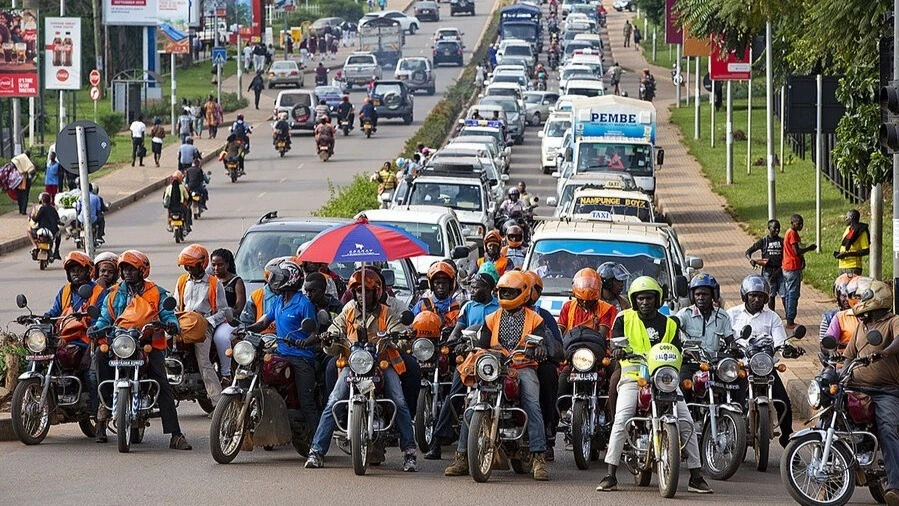Silent epidemic: Motorcycle accidents costing lives daily

Every day, at least one life is tragically lost to motorcycle accidents in Tanzania—a stark reminder of the alarming state of road safety in the country.
In 2023 alone, the Tanzania Police Force recorded 1,733 road crashes, resulting in 1,647 fatalities—a concerning 6.6 percent increase compared to the previous year. Among these, motorcyclists accounted for 376 deaths, marking a 13.3 percent rise.
This is a crisis like any other in our nation, yet we do not discuss it and treat it as normal, which is not right; this is a crisis—a very serious one—that requires urgent action.
The Muhimbili Orthopedic Institute (MOI), a key medical facility in the country, treats approximately 700 road accident victims each month, with 60 percent of the cases involving motorcycle-related injuries.
These figures reveal a transport sector descending into chaos, leaving devastating impacts on Tanzania’s workforce, families, and societal structure.
Motorcycles, or bodaboda as they are locally known, are a double-edged sword for Tanzania, on the one hand, they are a lifeline for many, providing a reliable means of transportation that can navigate congested city streets and reach remote rural areas where other forms of transport fail.
They also offer a quick source of income for thousands of young people in a country with limited job opportunities.
On the other hand, their rapid proliferation has unleashed a wave of tragedies, with lives shattered and families plunged into despair, beneath their convenience lies a grim reality: Bodaboda are fast becoming symbols of peril on Tanzania’s roads.
A significant factor contributing to this crisis is the lack of proper training among riders, as many operate without licenses, helmets, or a basic understanding of road safety protocols.
Reckless behavior—speeding, overloading, and overtaking on narrow roads—is commonplace, turning the nation’s streets into death traps.
Although regulations exist, their inconsistent application allows unsafe practices to persist, making the roads increasingly hazardous.
If current trends continue unchecked, Tanzania faces dire consequences, with projections suggesting that by 2034, the daily average of one fatal accident could double, overwhelming the healthcare system, impoverishing families, and drastically reducing productivity.
The economic toll is staggering, as medical bills, funeral costs, and the loss of breadwinners exacerbate household vulnerabilities and perpetuate cycles of poverty.
Other nations have faced similar challenges and found ways to mitigate the damage, in India for instance; motorcycles contribute significantly to road accidents, prompting the government to enforce strict helmet laws, introduce rider education programs, and invest in expanding urban transport systems like metro networks.
China, in a more radical approach, banned motorcycles in major cities, replacing them with electric bicycles and improved public transportation infrastructure, these measures have yielded remarkable results, reducing fatalities and enhancing road safety.
For Tanzania, addressing this crisis demands urgency and a multi-faceted approach, the first step involves mandatory rider training programs to ensure that every bodaboda operator understands the basics of road safety.
Helmet use should be non-negotiable, with strict penalties for those who fail to comply, and infrastructure improvements, such as creating designated motorcycle lanes and installing clear road signage, are equally essential to promoting order and reducing collisions.
Educating riders, passengers, and communities about the life-saving importance of adhering to safety protocols could foster a culture of responsibility, while collaborations with local leaders and organizations would help amplify these messages, ensuring they reach even the most remote areas of the country.
Immediate interventions alone won't be enough, but the government must also address the underlying economic dependence on bodaboda
Vocational training programs in fields like carpentry, mechanics, and agriculture could offer young people safer, alternative employment options, and these programs would provide practical skills, reducing reliance on the dangerous motorcycle sector.
Remote work and e-commerce ventures could absorb some of the workforce currently dependent on high-risk motorcycle operations, by investing in digital skills and resources, the government can help transition workers to safer, more sustainable economic activities.
The sobering statistics are not just numbers; they represent lives lost, futures destroyed, and a nation’s potential squandered.
Authorities must think critically, voicing the urgency of this crisis to spark nationwide dialogue and action.
They must reflect deeply, analyzing the socio-economic factors driving the bodaboda dependency while addressing systemic failures in enforcement and education.
A comprehensive understanding of the problem, informed by input from road safety experts, healthcare providers, community leaders, and riders themselves, is crucial.
Acting decisively requires more than policy formulation; it demands rigorous enforcement and the allocation of adequate resources.
Road safety is not merely a transportation issue—it is a matter of public health, economic stability, and national well-being.
The road ahead is challenging, but the stakes are far too high to ignore, with strategic reforms, effective enforcement, and a collective resolve, Tanzania can transform its roads from perilous battlegrounds into pathways of progress and opportunity.
The time to act is now—before the bodaboda crisis claims even more lives and livelihoods, leaving an indelible scar on the nation’s future.
Top Headlines
© 2025 IPPMEDIA.COM. ALL RIGHTS RESERVED

























